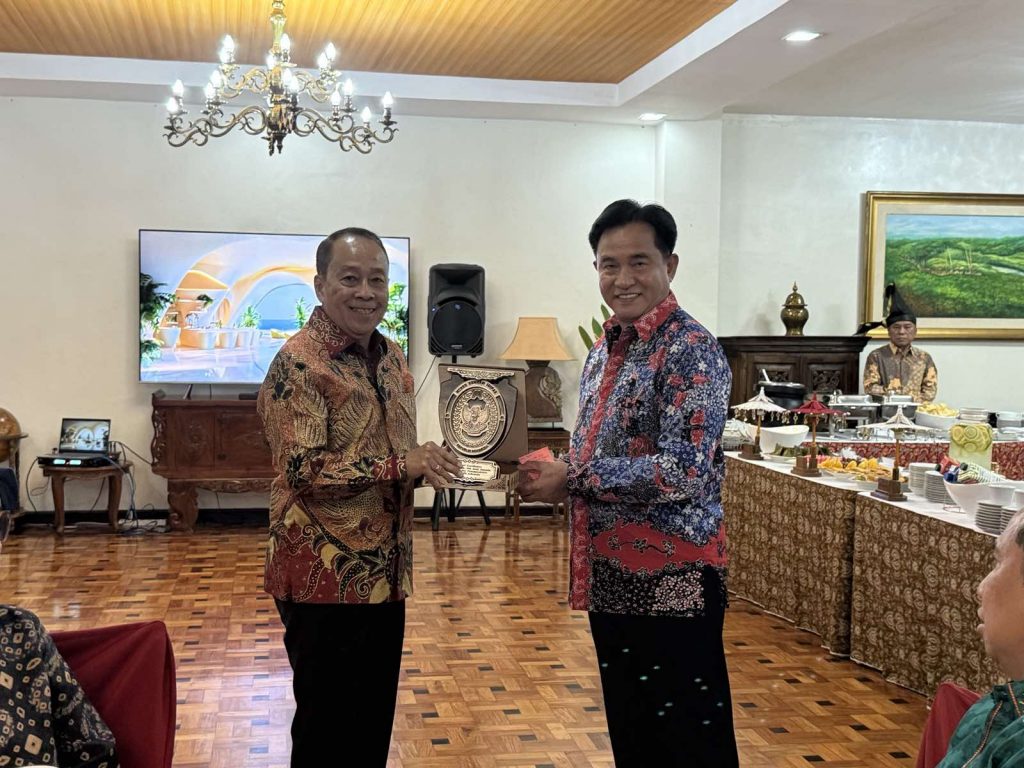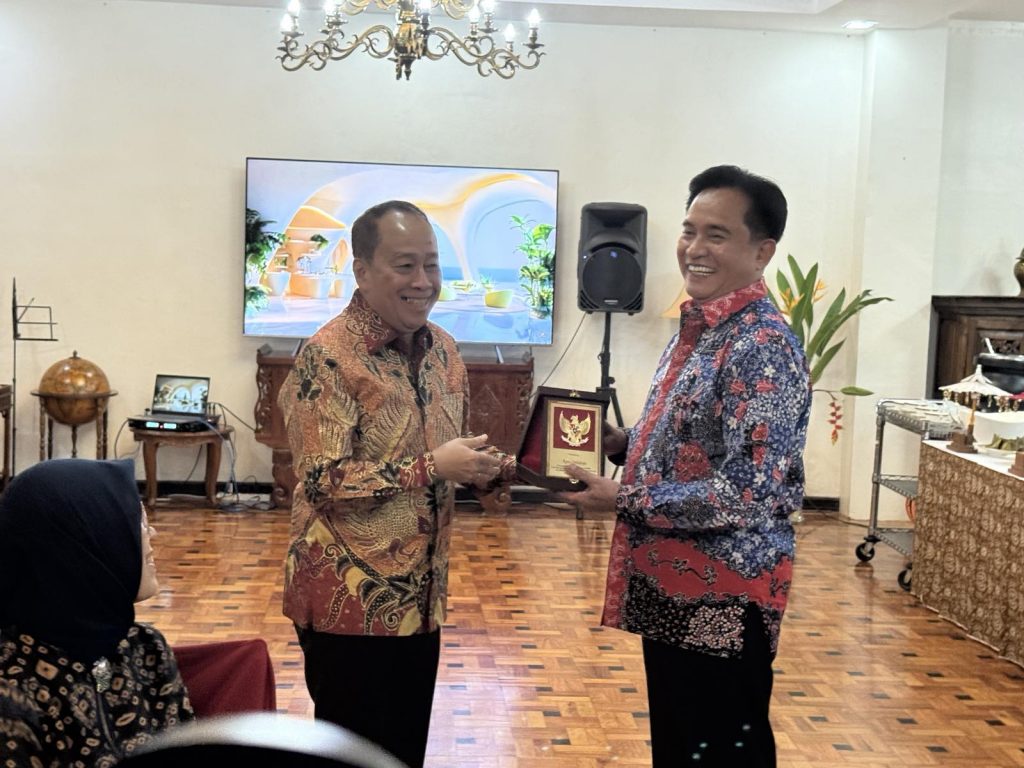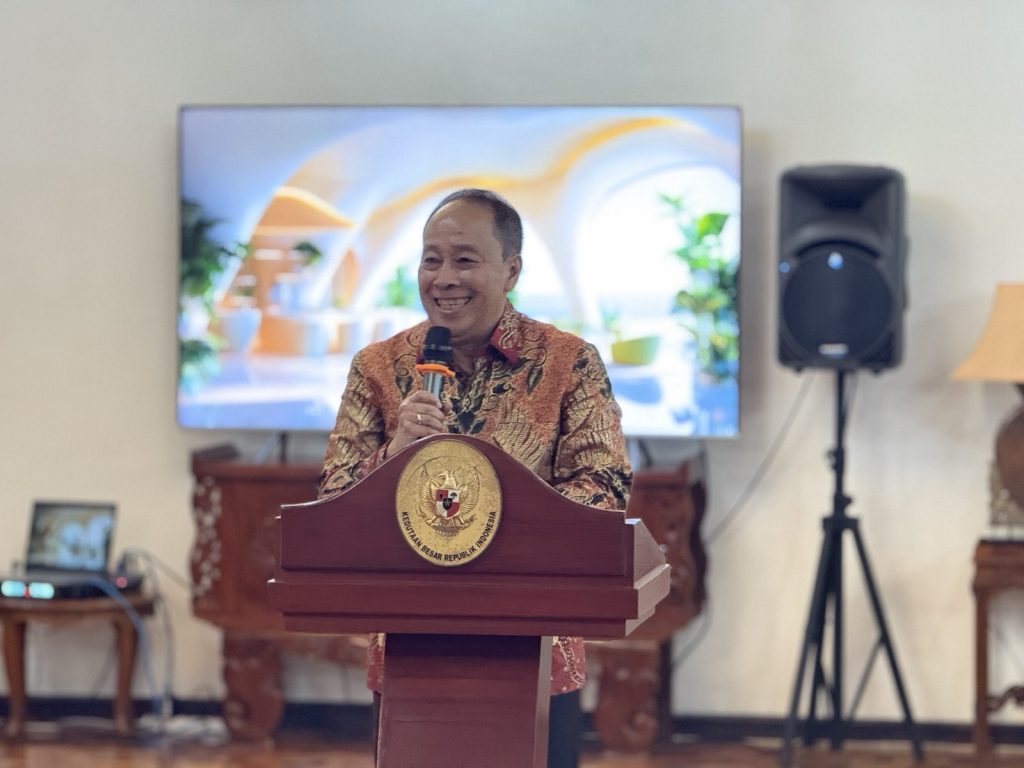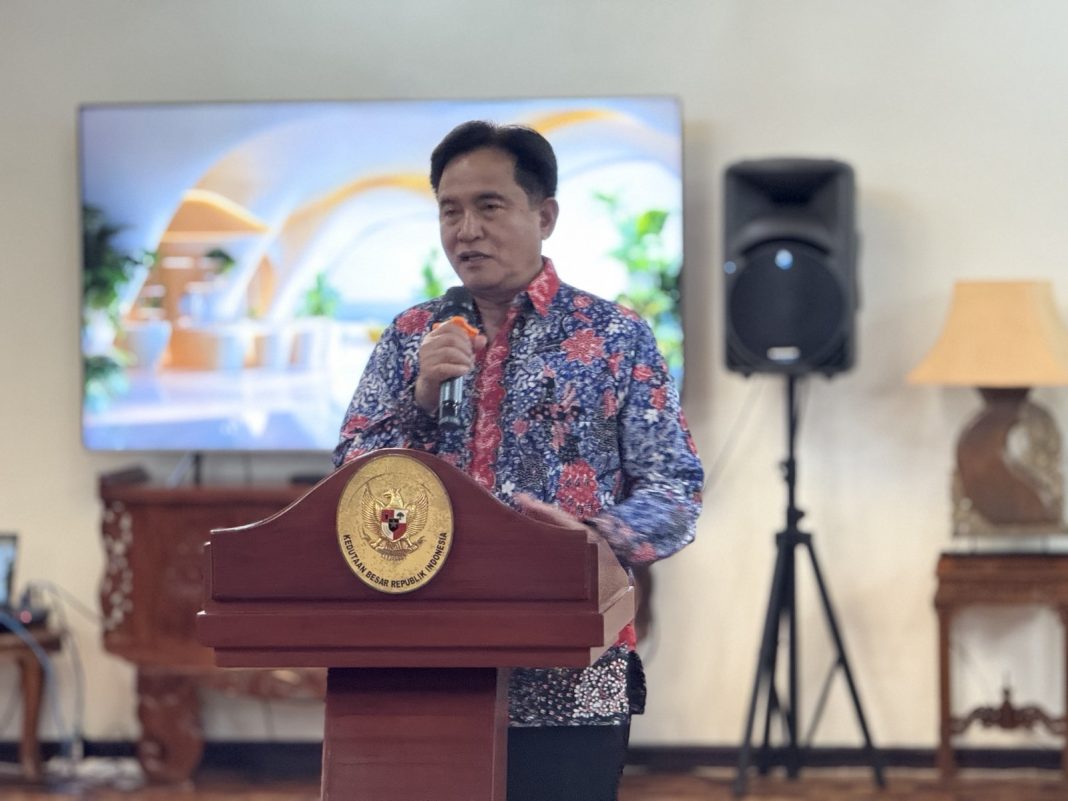Texts and photos by Monsi A. Serrano
Indonesia’s Coordinating Minister for Law, Human Rights, Immigration, and Corrections, H.E. Yusril Ihza Mahendra, is in the Philippines for a State visit from July 17 to 25, 2025, to strengthen bilateral cooperation on legal reform, immigration, human rights, and regional diplomacy.

This historic visit marks the first high-level Indonesian delegation to the Philippines since the election of President Prabowo Subianto in 2024, underscoring Jakarta’s renewed focus on forging deeper ties with Manila.

“He wants the Philippines and Indonesia to deepen the cooperation by establishing personal relationships between Philippine President Ferdinand Marcos Jr. and Indonesian President Prabowo Subianto,” Minister Mahendra emphasized.
The Minister is best known in the Philippines for his compassionate legal support in the case of Filipina migrant worker Mary Jane Veloso, where he played a key role in facilitating her prison transfer and supporting clemency efforts on humanitarian grounds.
Mahendra’s visit includes key bilateral meetings with Philippine Justice Secretary Jesus Crispin Remulla, Senior Presidential Adviser Juan Ponce Enrile, and Senator Robin Padilla. He will also deliver a special academic address at the University of the Philippines Diliman, further affirming Indonesia’s commitment to legal diplomacy and people-to-people engagement.
Firm Advocate for Rule of Law and Human Rights
As Coordinating Minister, Mahendra reiterated Indonesia’s position that all law enforcement policies—especially those involving coercive state action—must be grounded in both national and international legal frameworks.
“Any law enforcement policy, especially those involving the use of state force, must be implemented with accountability and within the bounds of both national and international law,” he stated.
He also elaborated on the legal roles of international bodies, particularly the International Criminal Court (ICC), in addressing crimes against humanity.
“All policies involving coercive state measures must always uphold the rule of law and respect for human rights,” he said.
“Transparency and accountability are essential to prevent abuses that could lead to serious legal and human rights consequences.”
Minister Mahendra has a long-standing connection to the Philippines, both professionally as a former State Secretary of Indonesia and personally through his marriage to Filipino-Japanese Rika Tolentino Kato. Even after his government service, Mahendra has continued to visit the Philippines regularly while managing his legal firm, Ihza & Ihza Law Firm in Indonesia.
The Indonesian delegation was warmly welcomed by Indonesian Ambassador to the Philippines H.E. Agus Widjojo hosted a private dinner at his official residence in honor of Minister Mahendra and his delegation, reaffirming the strong and enduring friendship between the two nationsesident Prabowo Subianto,” Minister Mahendra emphasized.
The Minister is best known in the Philippines for his compassionate legal support in the case of Filipina migrant worker Mary Jane Veloso, where he played a key role in facilitating her prison transfer and supporting clemency efforts on humanitarian grounds.
Mahendra’s visit includes key bilateral meetings with Philippine Justice Secretary Jesus Crispin Remulla, Senior Presidential Adviser Juan Ponce Enrile, and Senator Robin Padilla. He also delivered a special academic address at the University of the Philippines Diliman, further affirming Indonesia’s commitment to legal diplomacy and people-to-people engagement.
Firm Advocate for Rule of Law and Human Rights
As Coordinating Minister, Mahendra reiterated Indonesia’s position that all law enforcement policies, especially those involving coercive state action, must be grounded in both national and international legal frameworks.
“Any law enforcement policy, especially those involving the use of state force, must be implemented with accountability and within the bounds of both national and international law,” he stated.
He also elaborated on the legal roles of international bodies, particularly the International Criminal Court (ICC), in addressing crimes against humanity.
“All policies involving coercive state measures must always uphold the rule of law and respect for human rights,” he said.
“Transparency and accountability are essential to prevent abuses that could lead to serious legal and human rights consequences.”

Meanwhile, Ambassador Widjojo expressed his profound gratitude to Minister Mahendra for visiting the Philippines and accepting the dinner invitation together with the Indonesian delegates.














